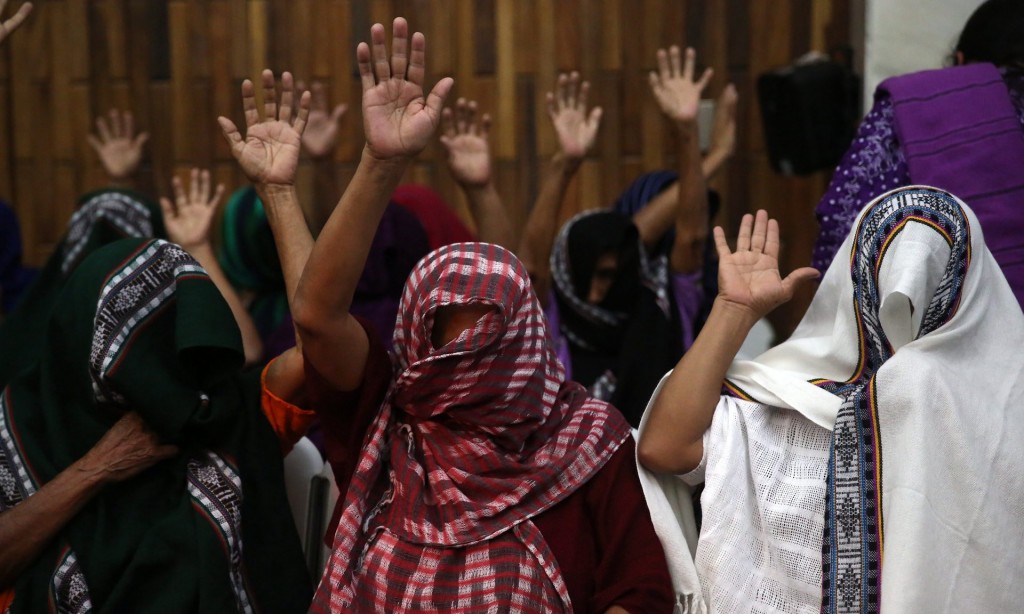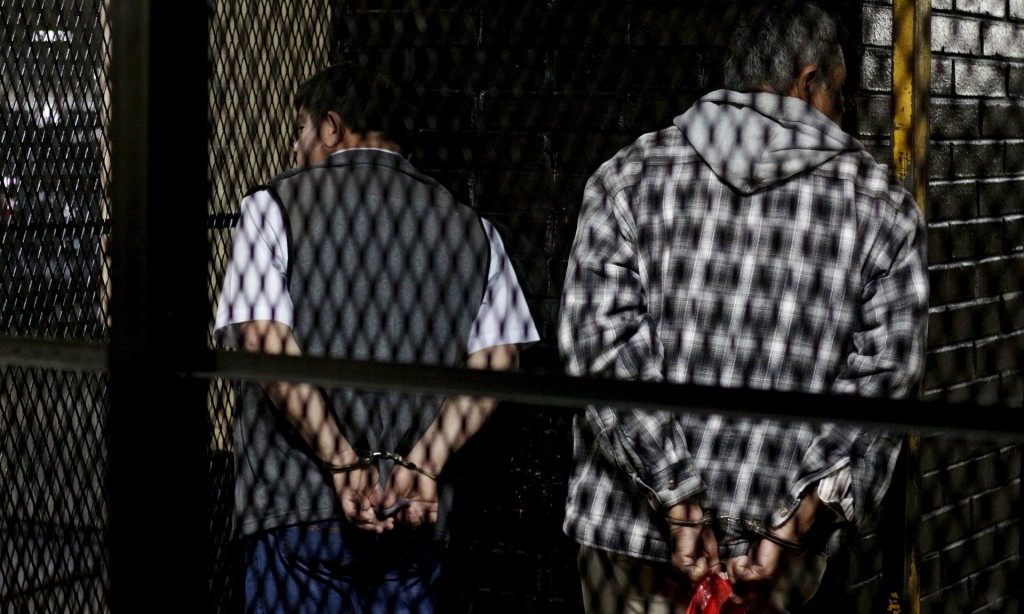
The word muxuk refers to a woman who has been “desecrated”, a woman whose “social and spiritual world was destroyed and broken in all of the areas of her life”. In the Q’eqchi’ language there are four ways to refer to sexual violence, yet muxuk is the term Guatemalan women of the Sepur Zarco community have chosen to use when talking about the war crimes perpetrated against them.
Neither Spanish nor English have the words to describe precisely the horrors these women experienced in 1982, during the Guatemalan armed conflict.
After decades of impunity, two former soldiers – base commander Esteelmer Reyes Girón and paramilitary Heriberto Valdez Asij – have been found guilty of crimes against humanity. On Friday, the high-risk court in Guatemala City sentenced them to a total of 360 years in prison for their crimes including the sexual enslavement of women.
The Sepur Zarco trial was groundbreaking for three reasons. Unlike other trials involving sexual violence during armed conflicts – such as the cases in Rwanda (pdf) and former Yugoslavia – the proceedings were conducted entirely by a national court.
The verdict has set a precedent for treating domestic and sexual slavery as war crimes – something that is crucial for the advancement of transitional justice in many Latin American countries.
And it seeks to build a standard of proof based on the testimony of survivors – important because, in a case like this, where the events occurred more than 30 years ago, little physical evidence is available.
Like many conflicts in Latin America, what happened in Sepur Zarco was a battle over the ownership of territory – both land and women’s bodies.
On 25 August 1982, during the Santa Rosa de Lima festival, soldiers captured the Q’eqchi men who had dared to request their land rights at the Instituto Nacional de Transformación Agraria (national institute for agrarian transformation).

After the men were taken, soldiers returned to rape the women. They were made to undertake forced labour at the military base and were routinely abused.
The Asociación de Mujeres Transformando el Mundo (association of women transforming the world), Unión Nacional de Mujeres Guatemaltecas (national union of Guatemalan women) and the collective Jalok U, an organisation formed by Q’eqchi survivors, have fought for years to get justice, and they are finally getting their chance.
Elsewhere in Latin America, other legal proceedings are putting sexual violence against women at the centre of the prosecution of crimes committed in the context of internal conflicts.
Last year, Peru created a registration platform for victims of forced sterilisation during the government of Alberto Fujimori in the 1990s and opened a criminal investigation. The prosecution has asked for more time to formalise its claim.
In Colombia, while peace dialogues take place in Havana, female survivors of sexual violence during the country’s longstanding conflict have organised to demand justice. Colombian prosecutors are investigating former Farc guerrilla Albeidis Arboleda, known as El enfermero (The Nurse), for allegedly conducting hundreds of forced abortions.
Although it has not been easy, women’s groups in Latin American countries have been working in their respective peace processes to ensure people understand conflict and its consequences from a gender perspective. Their work is paying off.
Women from the Americas are used to seeing their bodies as an extension of war scenarios. History is plagued with painful examples. Sexual slavery of indigenous women is not an invention of Sepur Zarco. It has been used as a weapon of war since the European conquest and was a key strategy for colonial oppression. Our countries were founded on an immense gap of inequality and racism. This gap enables the perpetrators to deny the dignity of their victims so it becomes “easy” to commit these crimes against humanity.
Sadly, the Sepur Zarco crimes are a clear example of the immense class and race division within Latin American societies. But the favourable ruling means that authorities in Guatemala must now ensure all victims of sexual violence, mass torture, killings and disappearances that took place during the country’s brutal civil war obtain justice. This offers hope for change in a region where women struggle to access justice and end impunity. The Q’eqchi survivors’ victory is a clear message for the whole region and the world: women’s bodies are not battlefields.

